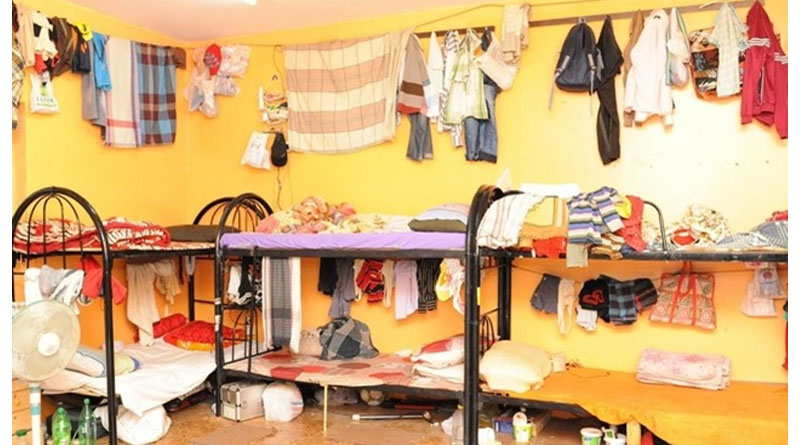Crackdowns on room-sharing in Abu Dhabi Not Deterring Labourers

Image Caption: Crackdowns from Abu Dhabi Municipality appear to be failing to deter workers from crowding into flats with some cases of more than 40 labourers living in 3-bedroom flats. Courtesy Abu Dhabi Municipality
ABU DHABI // Crackdowns and awareness campaigns appear to have failed to deter workers from crowding into flats in the capital, with many men sharing rooms with a dozen others.
More than 40 labourers were living in one three-bedroom flat visited by The National, each paying Dh300 a month rent.
Partitioned halls and rooms are also widely advertised to low-income workers, defying municipality regulations.
Bangladeshi Shimul Silk, who shares a room with 11 other men, pays Dh300 a month in rent, a figure he believes is too high for the space he gets.
“I pay this for a bunk-bed space,” said the hairdresser.
“My flat has three rooms and a hall and each room is occupied by 12 people, while only about 10 people live in the hall to leave some space for sitting.
“I have been living there for two years and never had any inspections or problems from the municipality.”
Abu Dhabi Municipality has been highlighting the dangers of subletting and room-sharing, even putting up billboards across the city, announcing: “Your home reflects your city.”
A spokesman for the authority said the municipality carried out three inspection campaigns a week and had a dedicated team to monitor buildings with congested bachelor and family accommodation. “It has ticketed all companies found in breach of the law and referred them to the municipality’s court,” he said.
“Transactions of the offending companies have also been suspended until they provide decent living on a par with the standards set by the municipality.”
On Monday, the municipality said it had imposed fines on eight offenders in Shahama and other outlying areas of the city.
A potential solution to the crowding of men in rooms is for the government, voluntary societies and youth hostels to offer accommodation, said urban planner Sampson Choy, the development and commercial manager at Smartwill Asia Limited – Abu Dhabi.
“If there are government-authorised organisations and voluntary societies that can offer room-sharing accommodation to bachelors, manage the facilities and maintain discipline, it will create a healthy living environment for them,” he said.
In some cities of the world, he said, youth hostels not only provided rooms for young travellers but also offered long-term accommodation for working men.
“It may be possible to establish some self-sustainable, non-profit shared-accommodation societies or youth hostels, and let them occupy old buildings and negotiate with their landlords to renovate and manage the buildings,” Mr Choy said.
Pakistani Bakhtawar Khan shares a room with several other men. “I share a bunk bedroom with five other people and pay Dh300 a month,” said the lorry driver, who lives in Mussaffah.
“We don’t earn enough to rent a good place with facilities; our income is very low.
“I know it’s not legal but we don’t have any other option.”
Abu Dhabi Municipality rules state that no more than six unrelated adults can live in one independent villa, no more than three can occupy a single bedroom in a flat and no more than two people can occupy a studio. Companies who break the rules can be fined up to Dh100,000.
But officials say they are tackling the problem.
“All violators are being referred to the municipality’s court,” the municipality said.
In labour camps, a room is generally shared by 10 workers but they are guaranteed six square metres of space per head, double the international standard of three square metres per head.
Many workers who share rooms in Abu Dhabi city have bunk bed space of 0.6 square metres, with rooms often fitted with three-tiered bunk beds.
(Source: TheNational.ae)



